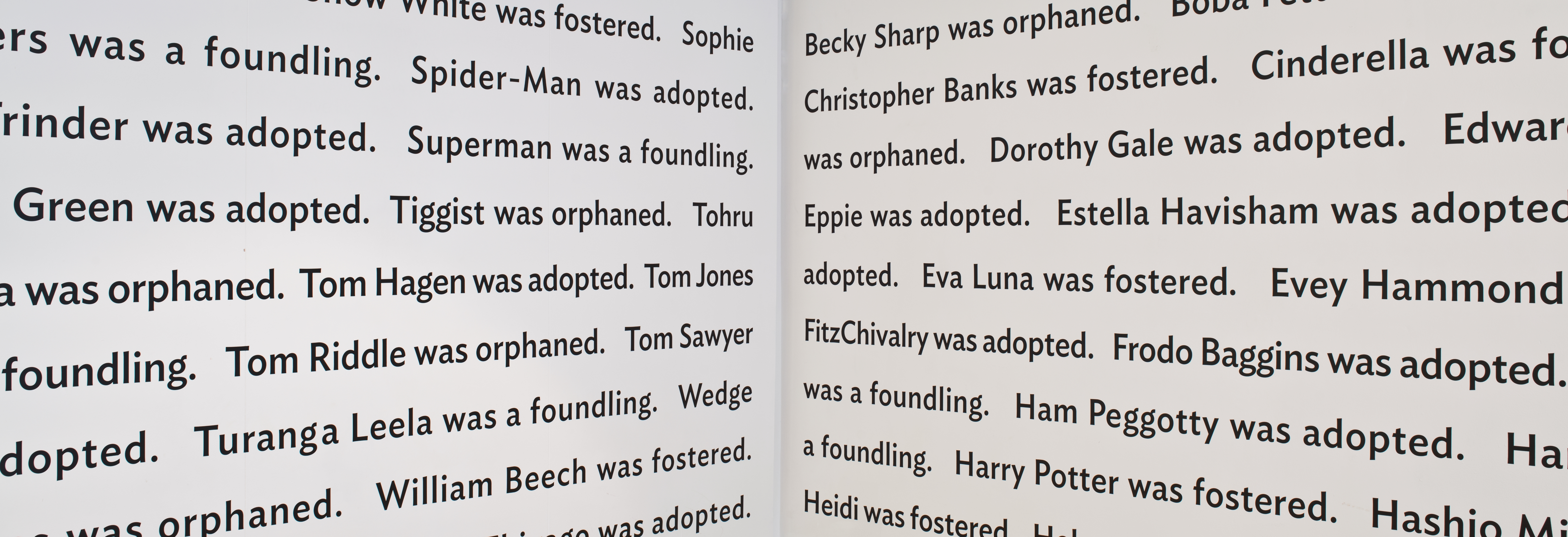Superman was a Foundling
Topic: REACH
Author: Lemn Sissay

'Superman was a Foundling' can be viewed at The Foundling Museum, central London, until 1 July 2020.
"Children have been fostered and adopted and orphaned and in care since the beginning of time. There are thousands of us. Millions of us. Many fear of us speaking of our past as if it would steal our present, as if it were kryptonite. As if it were a time bomb strapped on our inside. It is not. It is not to be feared. We are many. We are strong. We are part of the story that built this society. We are superheroes."
Lemn Sissay MBE
Working with The Foundling Museum in London, award-winning poet, playwright and broadcaster, Lemn Sissay MBE has created a written installation - ‘Superman was a Foundling’ – to explore the representation of orphaned, fostered and adopted children in popular culture.
Sissay, who has care experience, describes the project as addressing the disparity between our idolising fictional characters and disregard for their real life counterparts, who often face stigma and discrimination.
Sissay says: “Superman was a Foundling upraises the fictional stars of popular and classic culture who are fostered, adopted or orphaned. They range from Romulus and Remus of Rome’s foundation myth, to Lisbeth Salander of The Girl with the Dragon Tattoo. Their adventures have enriched our lives, but we do not recognise the connection between the fictional characters and the fostered, adopted and orphaned children in our midst.
“Did Superman have ADHD? Did Harry Potter have an uncontrollable temper? Was Lisbeth Salander unable to form lasting relationships? For all their complexity and pain, these characters are shining examples of how to be your best. Young people in care enrich our lives in a similar way.”
The work can be viewed at The Foundling Museum until 1 July 2020.
Can you think of other fictional characters who grew up in children’s homes or were fostered, adopted or orphaned? Let The Foundling Museum know on Twitter, or leave a note at the Information Desk if you happen to visit the exhibition. All suggestions will be passed on to Lemn, who aims to build the most comprehensive list in the world of fictional characters who had alternative childhoods.



